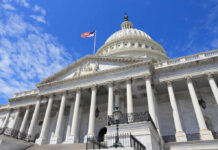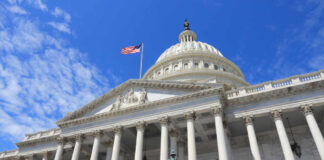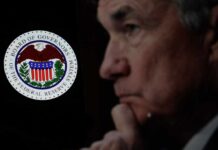
In a striking display of noncompliance with North Dakota state law, Fargo Public Schools (FPS) has decided to keep students’ gender identities concealed from parents. The district’s decision brazenly disregards a new bill, signed into law by Republican Gov. Doug Burgum, which mandates that schools cannot withhold such information.
Dr. Rupak Gandhi, the Superintendent of FPS, declared that the district would not “openly out any student because of one law if we know that that’s going to cause harm to that child.” The school board backed this decision and set a concerning precedent that schools, rather than parents, should wield control over students’ personal information.
Governor Doug Burgum of North Dakota signed a bill prohibiting public schools and government offices from requiring its employees to use transgender pronouns: https://t.co/IRQbxMcNUl pic.twitter.com/hpsc5dTjGV
— EWTN News Nightly (@EWTNNewsNightly) May 10, 2023
Despite Gandhi’s assurance that the decision was not made against parents, many were outraged, claiming that the school was effectively trying to protect children from their parents. In addition, the school’s actions were perceived as suppressing open conversation and facilitating secret-keeping. This notion should raise concern among those advocating for family values.
One father rightly said, “Instead of encouraging everyone to talk more, you are suppressing talk.” Another mother urged the board to pay attention to the precedent being set, questioning, “Whose kids are these? Do they belong to you as a school board? Or is each child’s parent ultimately the decision-maker in their family over what is allowed and what is safe for that child?”
This episode exposes a troubling trend within the school system where a parent’s rightful authority over their children’s well-being and upbringing is being undermined. Moreover, these developments raise valid concerns about the degree of power and influence educational institutions hold over students’ personal lives, often in direct contrast with their parents’ knowledge or consent.
The new law, HB1522, explicitly prohibits concealing a student’s transgender status from their parent or legal guardian. Critics, however, fear that such disclosure could lead to unsafe home environments for students who identify as transgender. Yet, disregarding the law to “protect students” raises questions about the appropriateness and legality of the school’s decision.
Moreover, the move by FPS to defy state law may open the district to legal challenges. With these developments, some parents urge the school board to reverse the decision. This call signifies the need for a reassessment of the district’s approach.
In the end, the Fargo case stands as a reminder that we should strive for an education system that promotes open dialogue between parents, students, and schools rather than fostering a culture of secrecy. It is the right of parents to know and guide their children’s path, and schools must respect and acknowledge this crucial element of the family structure.

















